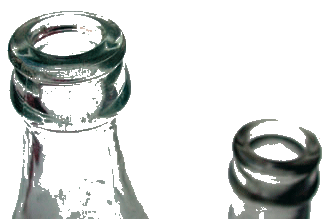2022 International Year of Glass

At Avacon, we wish to celebrate the contribution glass has made to everyday life.
Automation in the manufacture of glass containers is a relatively recent phenomenon dating back to early 1900 when, following numerous trials, the first machine was built for the automatic manufacture of glass vessels and their production in series. The complete mechanisation of the process led to mass production, and from 1925 onwards machines were launched onto the market with individual sections, starting off with a four-section machine and evolving through to the 20 sections we now have today.
The United Nations have proclaimed 2022 as the International Year of Glass (IYoG 2022), inviting its member states to adopt measures to raise people’s awareness of the importance of glass in everyday life. The UN describes glass as follows: “With its unparalleled versatility and technical capabilities, glass in its many guises has fostered innumerable cultural and scientific advancements”.
The fact is that glass has left its imprint on human history through its numerous properties: it is transparent, inert, resistant to chemicals, recyclable (thereby fostering the circular economy), and one of the most efficient electrical insulators we know of. These properties render it of use for current applications such as fibre optics and smart glass capable of switching between transparent and opaque, as well as for some dating back as far as the 14th century with the discovery of lenses that have led to major scientific advances through the use of microscopes.
Yet glass has been with us for 4,000 years, when it was already being used in Egypt and Mesopotamia for making containers. One of the landmarks in the history of glass containers was recorded in 1790, when the inventor Nicolas Appert produced airtight jars for food preservation, a milestone that has unquestionably gone on to transform the food industry to this very day.
Today, glass plants operate 24/7 in a process in which robotics and automation play a crucial role. The latest technological innovations, designed to improve the process with cleaner energies in pursuit of decarbonisation, with safer systems and better performances that ensure a more sustainable industry, are leading the sector into a future of containers with a neutral impact on our planet.
A challenge that we clearly want to be part of.